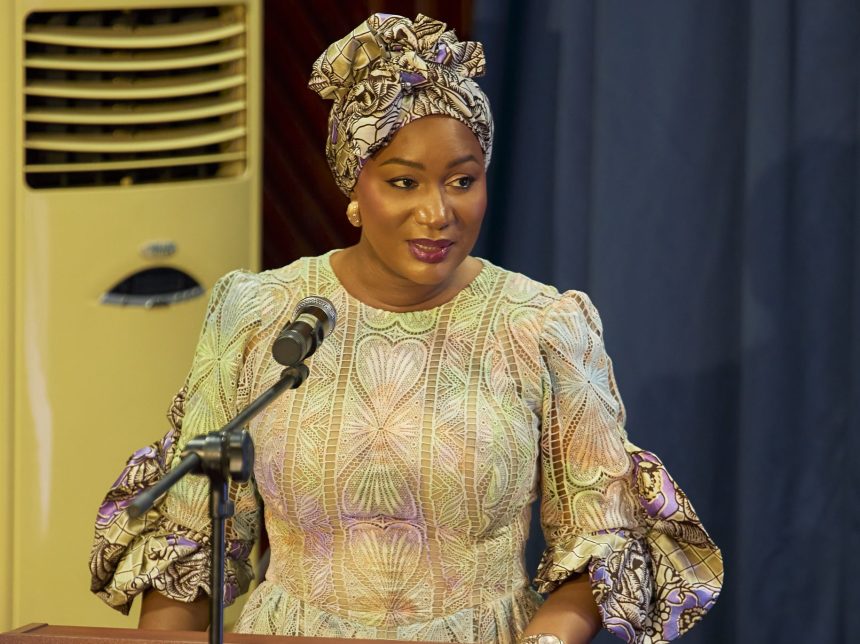Former Second Lady of the Republic of Ghana, Mrs. Samira Bawumia has made a resounding call for global climate strategies to center on women and children, while championing clean cooking solutions as a powerful intervention in the climate justice movement.
Delivering the keynote address on Day 1 of the two-day Climate Justice Conference organized by Eco-Africa Network and its partners, held on April 3rd and 4th at GIMPA, Mrs. Bawumia emphasized the urgent need for inclusive and equitable action to confront the climate crisis—particularly for communities that contribute the least to global emissions yet bear the brunt of its impacts.
“Climate change is not just an environmental crisis; it is fundamentally a justice issue,” she stated. “Those least responsible—especially women and children in the developing world are suffering the most.”
Citing data from the Intergovernmental Panel on Climate Change (IPCC), she revealed that more than 3.6 billion people globally live in areas vulnerable to climate threats. Women and children, she noted, often suffer disproportionately from these effects, including food insecurity, health risks, and economic displacement.
Mrs. Bawumia also expressed deep concern over the low levels of funding directed toward gender-focused climate solutions.
“Less than 2% of global climate finance goes to initiatives promoting gender equality, and less than 1% reaches women-led organizations. That must change.”
As Global Champion for the Clean Cooking Alliance, she advocated for increased investment in clean energy, particularly clean cooking technologies, which she described as transformative for health, the environment, and gender equity.
“Three billion people still rely on solid fuels for cooking, leading to indoor air pollution that kills 3.2 million people annually. Women and children make up over 60% of these deaths. Clean cooking is a human right—it’s about survival, dignity, and opportunity.”
According to her, transitioning to clean cooking can reduce global carbon emissions significantly, while freeing women and girls from the time and health burdens associated with traditional biomass use.

The two-day Climate Justice Conference was organized by Eco-Africa Network in partnership with Frontline for Climate Action, GIMPA Law School, the Law Students’ Association (GIMPA LSA), GIMPA SRC, CESSMA, iSupreme, and Tictok, to explore legal solutions, policy innovations, and community-driven approaches to climate justice.
–
Story by: Wahab Abdul Razak | univers.ug.edu.gh





